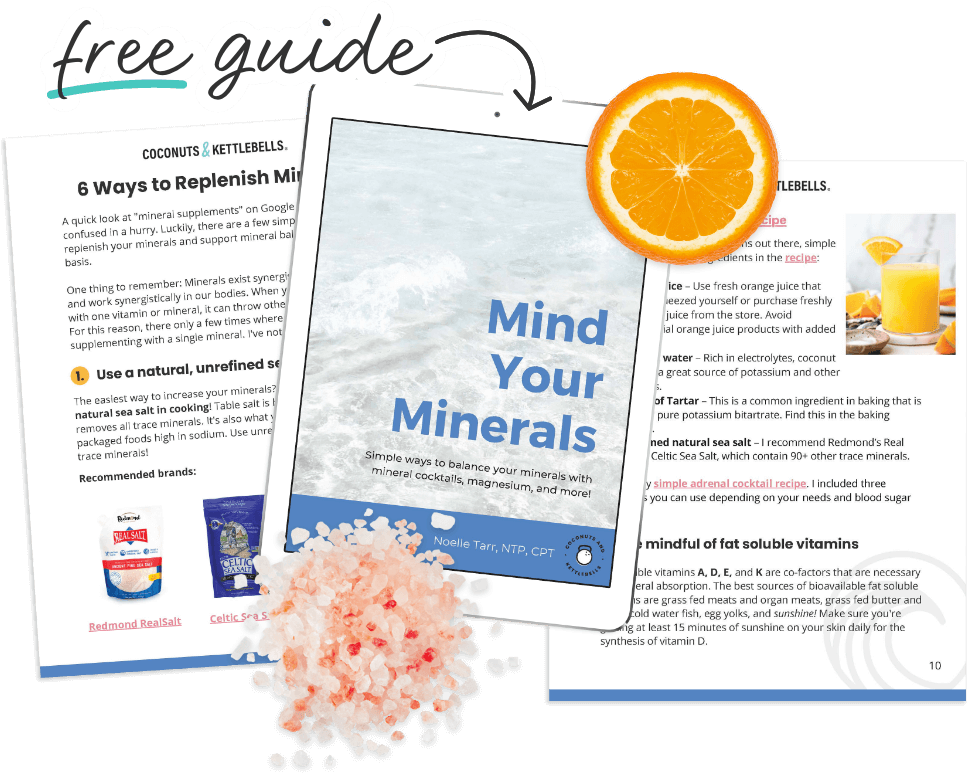Magnesium is a powerhouse mineral with a wide variety of benefits. In fact, studies show it can help improve mood, sleep quality, blood sugar regulation, and migraines.
When it comes to daily magnesium dosage, the National Institute of Health puts the RDA at 310-420 mg for adults. An evidence-based dose is anywhere between 200-400 mg.
Magnesium supplementation is incredibly important because your body can’t make it or store it. As people start to integrate magnesium into their routine, a common question arises: When is the best time to take magnesium?

While magnesium can support your health no matter what time you take it, there are a few things that can influence its effectiveness. Here’s what you need to know about when to take different forms of magnesium to reap the most benefits.
Does Timing Matter?
When it comes to how you take your magnesium, the most important thing is consistency. Most studies show benefits when magnesium is taken long term, with symptom improvement occurring after 2-12 weeks of daily supplementation.
Therefore, the best time to take magnesium is whenever it works best for you and easily fits into your daily routine. Some people do best taking supplements at night, while others take them in the morning with breakfast.
Factors That Influence Magnesium Timing
Aside from making it a daily habit, there are a few things to consider that may influence when you take magnesium:
1. Your Goals and Needs. Consider your personal goals and what symptoms you’re experiencing. For example, if you tend to get headaches mid-afternoon, it might be best to take it at that time. If you feel restless at night, it’s best to take it before bed.
2. AM or PM. Magnesium may help improve mood and muscle relaxation. To improve sleep, take it 1-1.5 hours before bed. If you struggle with stress or feeling overwhelmed at the start of the day, take it in the AM.
3. With or Without Food. While you can take magnesium with food or on an empty stomach, some forms of magnesium aren’t as readily absorbed and may cause intestinal issues, like magnesium oxide. For this reason, it’s best to take less absorbable forms with food to reduce side effects. More bioavailable forms, like magnesium lysinate glycinate or magnesium glycinate do not cause digestive problems, so they are easily absorbed on an empty stomach.
4. Pre-Workout vs Post-Workout. Athletes and fitness enthusiasts may wonder about the best time to take magnesium in relation to their workouts. Pre-workout magnesium intake can contribute to energy metabolism, while post-workout supplementation may aid in muscle recovery and relaxation.

What’s Best For You?
When it comes to magnesium, consistency is key. The best way to take magnesium ultimately depends on your goals, the form you’re taking, and symptoms. Whether you aim to enhance sleep quality, support muscle function, or improve overall well-being, understanding the factors that influence timing can help you make informed decisions. Consider consulting with a trusted medical practitioner if you have more questions about your individual needs.
If you want to take a highly absorbable form of magnesium that can be taken with food or on an empty stomach, take Well Minerals More Chill Magnesium or Pure Magnesium Lysinate Glycinate. Both are 100% chelated and designed with a special MCT formulation that eliminates unwanted additives and fillers.



0 Comments